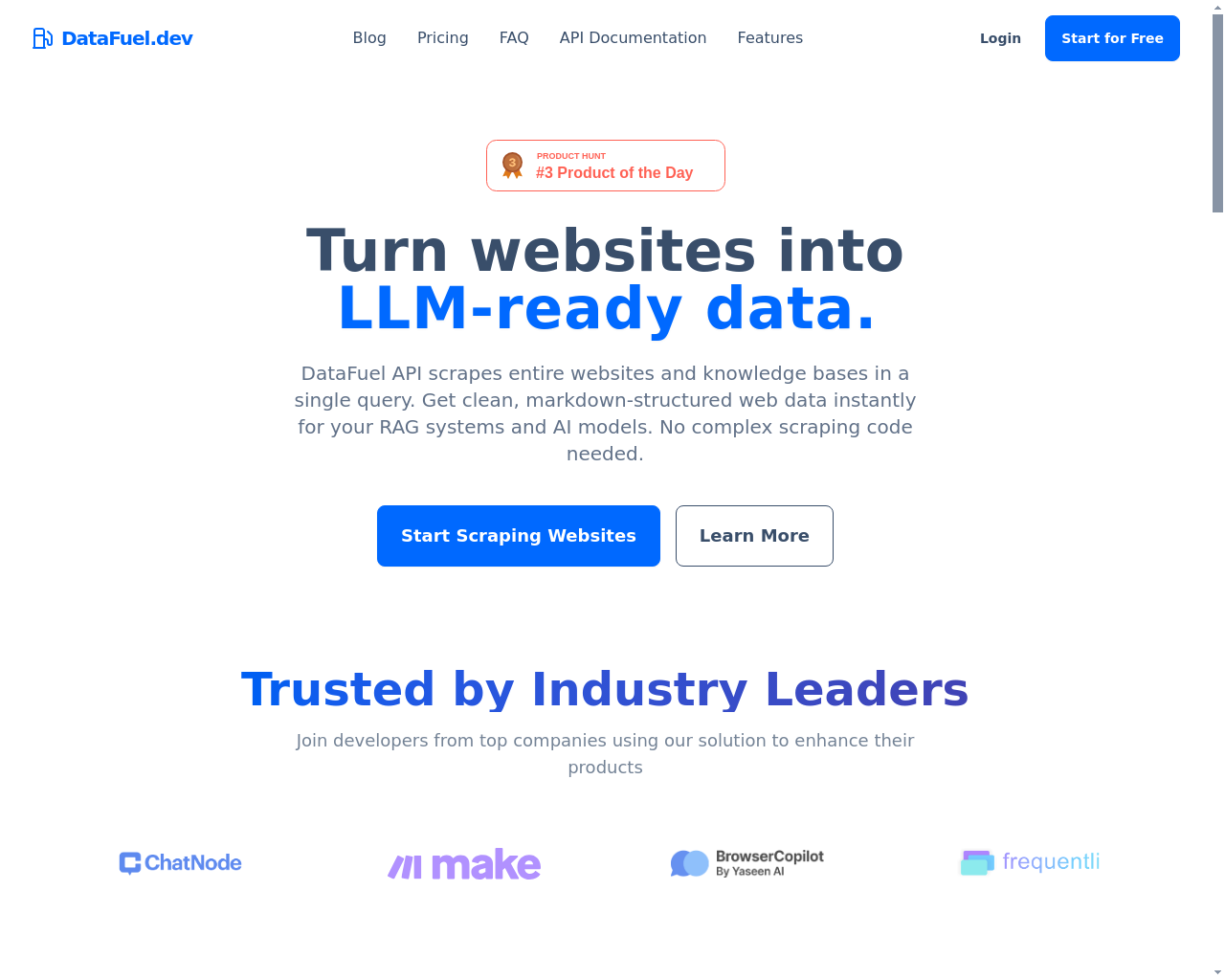

Highlight 1
The API efficiently converts website content into structured markdown data, eliminating the need for manual scraping.
Highlight 2
Its user-friendly interface makes it accessible for developers of different skill levels, accelerating the onboarding process.
Highlight 3
The initial traction with paying users suggests a real market need and validates the product's concept.

Improvement 1
The API documentation could be enhanced to provide clearer examples and use cases, helping users to implement it more effectively.
Improvement 2
Support for batch-processing of multiple websites at once could significantly improve usability for users managing extensive datasets.
Improvement 3
Enhanced error handling and response statuses could help users troubleshoot issues more effectively.
Product Functionality
Introduce batch processing capabilities for scraping multiple websites simultaneously to enhance user efficiency.
UI & UX
Improve the API documentation with more examples, screenshots, and possibly a guided setup walkthrough to enhance the user experience.
SEO or Marketing
Consider creating educational content (like blogs or tutorials) focused on use cases of DataFuel.dev to drive organic traffic and user engagement.
MultiLanguage Support
Implement multi-language support in the UI and documentation to cater to a wider, global audience.
- 1
What kind of websites can I scrape using DataFuel.dev?
DataFuel.dev can scrape a wide range of websites as long as they permit scraping according to their terms of service and robots.txt rules.
- 2
How does DataFuel.dev ensure the data is in markdown format?
The DataFuel API is built specifically to convert the scraped data into clean markdown, which is useful for integration with LLMs.
- 3
Is there a free trial available for DataFuel.dev?
You can inquire about the availability of a free trial or free tier by visiting the website or reaching out through their support channels.
